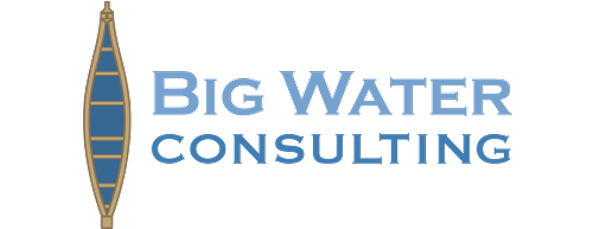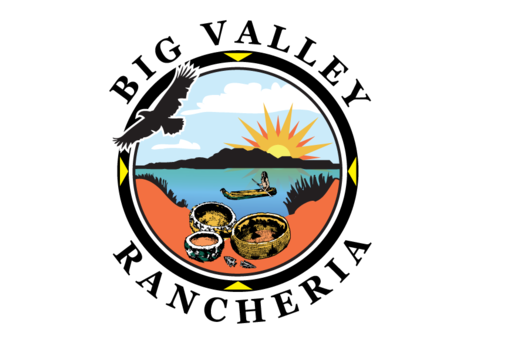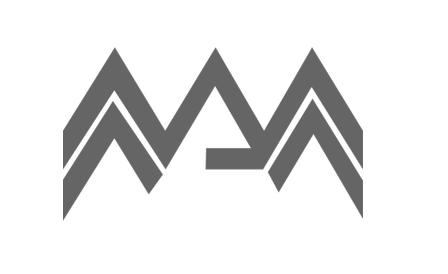Lake County, California
Big Valley Rancheria is home to the Big Valley Band of Pomo Indians, descendents of the Xa-Ben-Na-Po Band of Pomo Indians that have inhabited the Clear Lake area of present-day California for thousands of years. The Big Vallery Rancheria Community Needs Assessment seeks to gather data on the housing and other programming needs of Big Valley residents and Tribal members. The needs assessment will also inform renovations to rental housing being conducted by Sustainable Native Communities Design Lab at MASS Design, a Native-owned architecture firm.
Native Action Network
Seattle, Washington
Native Action Network is conducting the Native Women’s Leadership survey to collect qualitative and quantitative information from Native women throughout Washington state interested in all forms of leadership. These include all levels of government, business, nonprofits, activism, and community leadership. Native Action Network will use this information to strengthen and develop its programs supporting Native women’s leadership, to identify opportunities and barriers, to facilitate mentorship and partnership opportunities, and to build a sisterhood of Native woman leaders in the state of Washington.
Muckleshoot Community Needs Assessment
Auburn, Washington
Muckleshoot Indian Tribe is composed of descendants of the Duwamish and Upper Puyallup peoples of Central Puget Sound. The Muckleshoot Community Needs Assessment seeks to gather data on the housing and other programming needs of Muckleshoot Reservation residents and Tribal members. The needs assessment will also inform a permanent supportive housing development in partnership with BeauxSimone Consulting and RTHawk Housing Alliance.
Shoshone-Bannock Tribes Community Needs Assessment and Housing Fabrication Facility Feasibility Study
Fort Hall, Idaho
The Shoshone-Bannock Tribes are federally-recognized tribes residing on the Fort Hall Indian Reservation, located in the eastern Snake River Plain of southeastern Idaho near the town of Pocatello, Idaho. The Shoshone-Bannock Tribes of Fort Hall comprise the eastern and western bands of the Northern Shoshone and the Bannock, or Northern Paiute, bands. After the success of the 2016 Shoshone-Bannock Tribes Community Needs Assessment, the Shoshone-Bannock Tribes have launched the 2021 Shoshone-Bannock Community Needs Assessment and Housing Fabrication Facility Feasibility Study.
South Dakota Native Homeownership Coalition Appraisal Market Study
The Appraisal Market Study was commissioned by the South Dakota Native Homeownership Coalition (SDNHC) to describe the market for home appraisals on the nine Indian reservations in South Dakota and enable appraisers to evaluate the potential business opportunities available to them on reservation lands. Big Water Consulting used existing, available data from federal, state, and Tribal sources and interviewed and surveyed appraisers, lenders, and Tribally Designated Housing Entities (TDHES) to help determine the composition, size, value, and growth for valuation services on reservations within South Dakota.
Use-Related Methamphetamine Contamination in Managed Housing
In cooperation with Seven Sisters Community Development Group (Seven Sisters) and the Salish & Kootenai Housing Authority (SKHA), Big Water Consulting conducted research to evaluate the spectrum of current standards for safe or acceptable levels of use-related methamphetamine contamination in managed housing to facilitate SKHA’s development and adoption of new meth standards and policies. Big Water Consulting reviewed available scientific literature and legal standards to provide a comprehensive summary of the standards for safe use-related methamphetamine contamination levels in occupied housing units that have been adopted by local, state, and federal agencies in the United States and other countries, as well as a comprehensive review of how each standard was evaluated and finalized.
2020 Census Outreach and Education (King County and Washington State)
Washington State
Big Water Consulting created a coalition with United Way of King County, Urban League of Metropolitan Seattle, King County and Pyramid Communications which was funded by the Washington State Office of Financial Management to conduct 2020 Census outreach and education in King County, Washington. The scope of the effort was later expanded to cover the entire State of Washington.
Lac Courte Oreilles Community Assessment
Hayward, Wisconsin
The Lac Courte Oreilles Reservation is a largely wooded area in north-central Wisconsin that is punctuated by lakes, streams and the Chippewa flowage. Big Water Consulting trained the local Survey Manager and field staff to canvass the reservation and update the Tribe’s housing unit map prior to conducting a household survey involving a random sample of 945 housing units on the reservation. A paper survey form was also mailed to off-reservation members living in Sawyer County. An online survey form was also made available to the on-reservation and off-reservation survey respondents via a survey code provided to households included in the sample.
United Native American Housing Association (UNAHA) Meth Testing and Remediation Survey
Pablo, Montana
Big Water Consulting developed and facilitated the Meth Testing and Remediation Survey of United Native American Housing Association (UNAHA) members. This survey was designed to assess the impacts of meth use and manufacturing in tribal housing authority units on the administration of tribal housing programs, including the cost of meth testing and remediation and the exacerbation of existing housing shortages by the temporary removal of meth-contaminated housing units from service. The data collected via this survey will allow UNAHA to inform elected officials and agency staff at the state and federal levels about the extent of the meth problem and provide concrete numbers to funding sources that may be able fund efforts to address this problem.
South Dakota Native Homeownership Coalition (SDNHC) Veterans Housing Needs and Homeownership Study
Eagle Butte, Pine Ridge and Sisseton, South Dakota
With support from SDNHC, Enterprise Community Partners and Lakota Funds, Big Water worked with the Cheyenne River Housing Authority, Oglala Sioux (Lakota) Housing, and Sisseton Wahpeton Housing Authority to design and implement the Veterans Housing Needs and Homeownership Study. Data collected through an intercept survey and focus groups conducted on each of the three reservations will enable housing authorities, Tribal Veteran Service Officers and others to identify the housing and service issues most important to veterans and then develop and fund tailored programs that help address these concerns.
Native Village of Barrow Housing Needs Assessment
Barrow, Alaska
The Native Village of Barrow (NVB) is the northernmost community in Alaska, located north of the Arctic Circle. Data collected through a household survey enabled NVB to refine their housing map and illustrated a number of challenges faced by the community, including high costs of living (beyond rent, mortgage, and utilities), limited housing stock, and prevalent overcrowding. Results will be used to engage the Native Corporation and Borough partners in shared planning and provision of services.
Tohono O'odham Nation Census Challenge
Sells, Arizona
The Tohono O'odham Nation is a large tribe whose lands are located along the US-Mexico border in southern Arizona. Many Tohono O’odham move between Tucson and the Tohono O’odham Indian Reservation, where there are a substantial number of traditionally constructed homes. Data collected through a housing unit condition assessment and a household survey documented every structure on reservation and trust lands, successfully enumerated the non-transient population, revealed the challenges of households living in traditional homes, and is being used to support comprehensive planning as well as challenge U.S. Census data used in the Indian Housing Block Grant (IHBG) formula.
Shoshone-Bannock Tribes Needs Assessment
Fort Hall, Idaho
The Shoshone-Bannock Tribes are federally-recognized tribes residing on the Fort Hall Indian Reservation, which is located in the eastern Snake River Plain of southeastern Idaho near the town of Pocatello. The Shoshone-Bannock Tribes 2016 Tribal Needs Assessment includes a Household Survey, Homeownership Survey, and a Youth Survey. This project helped the Shoshone-Bannock Tribes launch their Tribal Homeownership Opportunities Program (THOP) which coincided with the launch of the Shoshone-Bannock Tribes Community Development Financial Institution (CDFI). The findings from this project will continue to help the tribal government and its programs attract new funding, better plan for tribal programs, improve services, and address homebuyer readiness through preparation courses.
South Dakota Native Homeownership Coalition (SDNHC) Housing Needs Studies
Eagle Butte and Mission, South Dakota
Big Water worked with the Cheyenne River Housing Authority and the Rosebud Economic Development Corporation (REDCO) to conduct two homeownership assessment studies commissioned by Lakota Funds and SDNHC. Analysis of existing data, as well as data collected through an intercept survey and key informant interviews, provided insight into perceived obstacles to homeownership, anticipated changes in housing supply and demand, levels of interest in and qualifications for homeownership, as well as other issues specific to each community. Results are being used to facilitate the development of homeownership and CDFI programs; two additional Housing Needs Studies were launched in 2018.
Dakota Housing Needs Assessment Pilot Project
Pine Ridge, Eagle Butte, Rosebud, Lower Brule (South Dakota) and Belcourt (North Dakota)
In cooperation with the Oglala Sioux (Lakota) Housing Authority, Sicangu Wicoti Awanyakapi (SWA) Corporation (Rosebud), Cheyenne River Housing Authority, Turtle Mountain Housing Authority, Lower Brule Housing Authority, Big Water designed and coordinated housing unit mapping and household surveys on five reservations. The purpose of the project was to collect population and housing needs data for each tribe that could be used to challenge and replace U.S. Census data, as authorized by the Native American Housing Assistance and Self-Determination Act (NAHASDA). The project also developed a model for collaborative, large-scale tribal data collection.




















